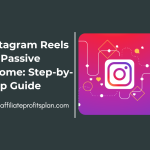Welcome to my article “How to Start a Remote Career with No Experience” So, you want to work remotely but have zero experience? No worries! We all start somewhere, and luckily, the internet doesn’t come with a bouncer checking resumes at the door. Remote work has skyrocketed in recent years, and companies are more open than ever to hiring people based on skills, not just fancy job titles. Whether you dream of working in pajamas or sipping coffee at a beachside café while answering emails (we won’t judge), landing your first remote job is totally doable—with the right approach.
The key to breaking into the remote world isn’t some secret handshake or a “work-from-home” fairy granting job offers—it’s about leveraging what you already know, building relevant skills, and strategically applying to the right opportunities. In this guide, we’ll walk you through beginner-friendly remote jobs, where to find them, how to gain experience without prior work history, and—most importantly—how to avoid common mistakes that could hold you back. Ready to swap the morning commute for a laptop lifestyle? Let’s get started!
Access Our Proven Tested Formula for $50-$100 Daily Income – Watch This FREE Video >>

Best Remote Jobs for Beginners
So, you’re ready to dive into the world of remote work, but there’s just one tiny problem—you don’t know where to start. Don’t panic! The good news is that many entry-level remote jobs don’t require years of experience, and some can be learned fairly quickly. The bad news? You’ll still have to put in some effort (sorry, no magical “get-rich-quick” button here). But if you’re willing to learn, there’s a whole digital world waiting for you.
Here are some of the best remote jobs for beginners that can help you kick-start your work-from-home career:
1. Virtual Assistant (VA)
If you’re organized, good at multitasking, and don’t mind handling emails, scheduling, or basic admin work, this is a great place to start. Many small business owners, entrepreneurs, and even influencers need VAs to keep things running smoothly. No fancy degree required—just solid communication skills and a knack for staying on top of things.
2. Freelance Writer or Content Creator
Can you string a few words together without making readers cringe? Perfect! Businesses, blogs, and websites are always looking for content writers. Whether it’s writing blog posts, social media captions, or product descriptions, you can get paid to write—even if you don’t have a degree in English. Platforms like Upwork, Fiverr, and Medium can help you get started.
3. Customer Service Representative
If you have a decent internet connection, patience, and the ability to sound friendly even before your first cup of coffee, customer service might be your calling. Many companies hire remote workers to assist customers via phone, chat, or email. Bonus: Some roles come with decent benefits!
4. Social Media Manager
Are you the person who always knows the latest TikTok trends or can craft the perfect Instagram caption? Businesses need people to manage their social media accounts, engage with followers, and create content. If you can turn a basic post into a viral sensation (or at least get some solid engagement), this could be a fun and lucrative gig.
5. Online Tutoring
If you’re good at math, English, or even a musical instrument, you can make money teaching others. Websites like VIPKid, Cambly, or Preply let you teach students from around the world. No teaching degree? No problem. Many platforms just require fluency in English and a willingness to help others learn.
6. Data Entry
Not the most thrilling job, but if you’re looking for something straightforward, data entry is an easy way to break into remote work. It usually involves inputting information into spreadsheets or databases—perfect if you’re detail-oriented and don’t mind repetitive tasks.
7. Transcription Jobs
Have a good ear and decent typing skills? Transcription work involves listening to audio files and typing out what you hear. It’s a great gig if you enjoy working quietly and don’t mind rewinding audio clips 50 times to catch every word.
8. Remote Sales or Lead Generation
If you’re persuasive and don’t mind reaching out to potential customers, remote sales jobs can be incredibly lucrative. Many companies need people to generate leads, set up appointments, or sell their products—all from the comfort of home.
Final Thoughts
The beauty of remote work is that there’s something for everyone, whether you’re a people person, a creative soul, or just looking for something simple to get your foot in the door. The key is to start small, gain experience, and build up your skills over time. So, which job sounds like the best fit for you?
How to Build Skills and Gain Experience for Free
So, you want to land a remote job, but there’s a tiny little obstacle—you have zero experience. No worries! Everyone starts somewhere, and the good news is that you don’t need a fancy degree or expensive courses to gain the skills you need. With a little effort (and a solid Wi-Fi connection), you can start building your expertise for free. Let’s break it down.
1. Take Advantage of Free Online Courses
If the internet had a superpower, it would be making education accessible to everyone. Whether you want to become a freelance writer, virtual assistant, or graphic designer, there are tons of free learning platforms:
- Coursera & edX – Offer free courses from top universities on business, marketing, tech, and more.
- Google Digital Garage – Learn digital marketing, coding, and even career development skills.
- HubSpot Academy – Perfect for learning content marketing, social media, and SEO.
- YouTube – Yep, the same place where you binge-watch cat videos also has millions of free tutorials.
No excuses—just pick a skill and start learning!
Access Our Proven Tested Formula for $50-$100 Daily Income – Watch This FREE Video >>
2. Gain Experience by Doing Real Work (Even If It’s Unpaid at First)
I know, working for free doesn’t sound exciting. But hear me out—getting real-world experience is what will make you stand out. Here’s how:
- Freelance Platforms (Fiverr, Upwork, PeoplePerHour) – Take on small, low-paying gigs to build your portfolio.
- Nonprofits & Small Businesses – Offer to help with social media, writing, or admin work in exchange for experience.
- Personal Projects – Want to be a graphic designer? Create mock designs for real brands. Interested in writing? Start a blog or post on Medium. Employers love to see actual work, not just course certificates.
3. Master the Tools of the Trade
Every remote job has its own set of tools. Knowing them in advance can give you a serious edge. Some of the most in-demand ones include:
- Google Workspace (Docs, Sheets, Drive) – Used in almost every remote job.
- Trello, Asana, or ClickUp – Project management tools that keep teams organized.
- Canva & Adobe Express – Great for beginners looking to create graphics.
- Slack & Zoom – Because remote work means lots of virtual meetings (yay?).
- WordPress & Shopify – If you’re interested in blogging or e-commerce.
The best part? Many of these tools offer free versions, so you can practice before you even apply for jobs.
4. Network Like a Pro (Without Feeling Awkward)
You don’t have to be an extrovert to build connections. Join LinkedIn, Facebook groups, and Reddit communities where remote workers and freelancers hang out. Ask questions, engage in discussions, and share what you’re learning. Sometimes, the best job opportunities come from just talking to people in the industry.
5. Build an Online Presence
If you want to be taken seriously, having an online presence is key. Here’s how to showcase your skills:
- Create a LinkedIn Profile – Highlight your new skills, connect with professionals, and share insights.
- Start a Portfolio Website – Use free platforms like Wix or WordPress to display your work.
- Use Social Media Wisely – Twitter and Instagram can be great for networking, especially in creative fields.
Final Thoughts
No experience? No problem! With free resources, a bit of hustle, and the right mindset, you can start building your skills today. Remember, every expert was once a beginner. The trick is to start, stay consistent, and keep learning.
So, what’s the first skill you’re going to master?
Where to Find Entry-Level Remote Jobs
Alright, so you’ve built up some skills, polished your resume, and maybe even created a fancy LinkedIn profile. Now comes the big question—where do you actually find these remote jobs that don’t require years of experience? Don’t worry, I’ve got you covered. Here’s a breakdown of the best places to start your search.
1. Job Boards Specifically for Remote Work
Not all job boards are created equal—some are designed just for remote jobs, which means no more scrolling past “must be able to commute” listings. Here are some of the best ones:
- FlexJobs – One of the best (but it’s paid). It hand-picks legit remote jobs, so you don’t have to deal with scams.
- We Work Remotely – Great for beginners, especially in customer support, writing, and tech-related fields.
- Remotive – Lists a variety of remote positions, from marketing to customer service.
- Jobspresso – Focuses on tech, marketing, and customer support remote roles.
- Remote.co – A great mix of full-time and freelance opportunities.
Pro Tip: Set up job alerts on these platforms so you get notified the moment a new entry-level listing pops up. The early applicant gets the job!
2. Freelance Platforms for Side Hustles and Gigs
If you want to dip your toes into remote work before committing to a full-time job, freelance platforms are a great option. You can gain experience, build a portfolio, and start earning—all while working from your couch.
- Upwork – One of the biggest platforms for freelancers. Start small, get good reviews, and work your way up.
- Fiverr – Perfect for offering small services like writing, social media management, or design work.
- PeoplePerHour – Another great platform to find beginner-friendly gigs.
- Toptal – If you have tech or design skills, this is a great (and high-paying) option.
- Freelancer.com – Has a mix of easy gigs and long-term projects.
Pro Tip: Start with low-competition niches. For example, instead of just offering “logo design,” try “minimalist logo design for startups.”
3. Companies That Actively Hire Remote Workers
Some companies have fully embraced remote work and regularly hire beginners. If you don’t want to deal with job boards, go straight to the source. Some well-known remote-friendly companies include:
- Zapier – They hire for a variety of positions, and experience requirements are often flexible.
- Automattic (the company behind WordPress) – Great for writers, developers, and customer support roles.
- GitLab – Offers remote opportunities in marketing, design, and project management.
- Shopify – Frequently hires remote support staff.
- Toggl – Great for marketing, sales, and tech-related jobs.
Pro Tip: Check the company’s careers page instead of waiting for job listings to appear on job boards. Sometimes, they don’t advertise widely!
Access Our Proven Tested Formula for $50-$100 Daily Income – Watch This FREE Video >>
4. LinkedIn, Facebook Groups & Reddit
Believe it or not, social media is a goldmine for finding remote jobs—if you know where to look.
- LinkedIn – Use keywords like “entry-level remote job” or “work from home” in the search bar. Also, connect with recruiters in your industry.
- Facebook Groups – Search for groups like “Remote Jobs for Beginners” or “Freelance Writers & Virtual Assistants.” Many companies post jobs directly in these groups.
- Reddit – Subreddits like r/workonline and r/forhire are full of job postings and gig opportunities.
Pro Tip: Engage in these communities. Don’t just apply—comment, ask questions, and build connections. Employers love hiring people they already see engaging in their space.
5. Internships and Volunteer Work (Yes, Even Remotely!)
If you’re struggling to land a job due to zero experience, internships and volunteer opportunities can be your shortcut. Many organizations are happy to take on beginners, and these roles can turn into paid jobs later.
- Internships – Websites like Internshala and Handshake list remote internships that can help you gain experience.
- Volunteer Work – Offer to help nonprofits with social media, writing, or customer service. Websites like Catchafire and Idealist list remote volunteer opportunities.
Pro Tip: Treat internships and volunteer work like real jobs. Even if you’re not getting paid yet, the skills and references you gain will be worth it.
Final Thoughts
Finding an entry-level remote job isn’t impossible—it just takes a little strategy. The key is to be proactive:
✅ Set up job alerts.
✅ Apply consistently.
✅ Network with remote workers.
✅ Start with small gigs if needed.
Your dream remote job is out there—you just have to go find it.
Which job board or platform are you checking out first? Let me know in the comments!
Common Mistakes to Avoid When Starting a Remote Career
Starting a remote career is exciting—you get to ditch the daily commute, work in your PJs, and enjoy a level of freedom that traditional office jobs just don’t offer. But before you start picturing yourself working from a beach with a coconut in hand (spoiler: sand + laptop = disaster), let’s talk about some common mistakes that can trip you up.
Here are the biggest pitfalls to avoid when launching your remote career:
1. Not Having a Clear Routine
Ah, the sweet freedom of working remotely… until you realize that “just one more episode” on Netflix has turned into an all-day binge. Without a structured routine, it’s easy to blur the lines between work and personal time.
🚨 Mistake: Waking up whenever, working randomly, and letting procrastination take over.
✅ Fix: Set work hours, plan your day, and stick to a schedule—even if your commute is just from your bed to your desk.
2. Applying to Every Remote Job Without a Strategy
It’s tempting to send out 100 applications in one day, hoping something will stick. But spamming job boards with generic resumes is like throwing spaghetti at the wall—it’s messy, and most of it won’t stick.
🚨 Mistake: Applying to every remote job without tailoring your application.
✅ Fix: Focus on roles that align with your skills, customize your resume for each job, and write a strong cover letter that shows why you’re a great fit.
3. Ignoring Red Flags (a.k.a. Remote Job Scams)
If a remote job sounds too good to be true—like making $10,000 a month for “posting links”—it probably is. Scammers love targeting remote job seekers, so always do your research.
🚨 Mistake: Falling for job listings that promise quick cash with little effort.
✅ Fix: Stick to reputable job boards, check company reviews on sites like Glassdoor, and never pay upfront for a job opportunity.
4. Not Investing in Basic Remote Work Tools
You don’t need a high-tech office setup, but trying to work remotely with a slow laptop, unreliable internet, and zero organization is a recipe for frustration.
🚨 Mistake: Thinking you can be productive without the right tools.
✅ Fix: Invest in a decent laptop, good Wi-Fi, and tools like Google Drive, Trello, and Slack to stay organized and efficient.
5. Failing to Upskill and Stay Competitive
Remote work is competitive, and if you’re not improving your skills, someone else will be. Many remote jobs require digital skills, so it’s crucial to keep learning.
🚨 Mistake: Thinking your existing skills are enough forever.
✅ Fix: Take free courses on Coursera, Udemy, or LinkedIn Learning to stay ahead. Even learning basic digital marketing, writing, or coding can boost your remote career prospects.
6. Not Setting Boundaries with Family and Friends
Just because you work from home doesn’t mean you’re available for every little errand or last-minute plan. If you don’t set boundaries, you’ll find yourself constantly interrupted.
🚨 Mistake: Letting others assume you’re free all the time because you work remotely.
✅ Fix: Communicate your work hours clearly. Let people know that just because you’re home doesn’t mean you’re off work.
7. Expecting Instant Success
Remote work can be incredibly rewarding, but it’s not an overnight success story. If you expect to land a high-paying job in your first week, you might end up disappointed.
🚨 Mistake: Giving up too soon if you don’t see results immediately.
✅ Fix: Be patient, keep applying, improve your skills, and build experience—whether through freelancing, internships, or part-time gigs.
Final Thoughts
Starting a remote career can be life-changing, but avoiding these common mistakes will save you a lot of headaches. Build a solid routine, apply strategically, avoid scams, invest in your skills, and set boundaries.
Remember: Remote work isn’t just about where you work—it’s about how you work. Master that, and you’re on your way to success!
Which mistake do you think is the most common? Let me know in the comments!
Conclusion: Your Remote Career Journey Starts Now!
So, there you have it—your ultimate guide to starting a remote career with no experience! If you’ve made it this far, congratulations! You’re already ahead of most people who just dream about remote work but never take action.
Let’s do a quick recap:
✅ You’ve learned about beginner-friendly remote jobs (no, you don’t need to be a coding genius or marketing guru to get started).
✅ You now know how to build skills for free—because who doesn’t love free stuff?
✅ You’ve discovered the best places to find entry-level remote jobs, so no more aimless scrolling through sketchy job listings.
✅ And most importantly, you’re aware of the common mistakes to avoid, so you won’t fall into the classic “Netflix trap” of working from home.
Access Our Proven Tested Formula for $50-$100 Daily Income – Watch This FREE Video >>
Now, what’s next? Action.
Reading is great, but the real magic happens when you start applying for jobs, learning new skills, and putting yourself out there. Even if you don’t land your dream remote job right away, every step forward gets you closer.
Final Pro Tip: Treat your job hunt like a remote job itself—be consistent, stay organized, and keep improving. Remote work is all about proving your value, so keep learning, keep applying, and don’t get discouraged.
The world of remote work is growing fast, and there’s never been a better time to jump in. Your laptop (or smartphone) is your new office—so go ahead and make it happen!
Have any questions or need extra motivation? Drop them in the comments! Let’s get you started on your remote career journey.
Thanks a lot for reading my article on “How to Start a Remote Career with No Experience” till the end. Hope you’ve helped. See you with another article.










